
Sign up to receive Susan's latest post & your free Benefits for the Home School Parent E-book
S. A. J. Lyttek, a multiple award-winning writer, always loved writing, but didn’t arrive at the profession in the typical manner. After college and graduate school, she plunged into government consulting. In this environment, she discovered a knack for writing tests, interviews and other measurements. That soon became the focus of her career—reigniting her love for the written word. Thus captivated, she spent evenings freelancing “fun” writing including short stories, poems, articles and cards. When her eldest was a toddler, she quit full-time work to stay home and write. Eager to spend more time with her children, homeschooling intrigued her. From preschool through high school, she homeschooled both sons while continuing to freelance. While an integral part of the homeschooling community, she developed and taught writing classes to a generation of homeschoolers. Married to her childhood sweetheart, Gary, Mrs. Lyttek loves to share her commitment to learners of all ages and her fascination with the written word.
There’s something about the crazy weather and abundant pollen of spring that has always made me more tired than is reasonable. When I feel the air pressure change and breathe in some of the yellow dusting that coats the world (isn’t my car green under all that?), all I want to do is sleep. More specifically, nap.
And that would be because at night I’m either too stuffed up or too warm to actually sleep.
In other years I’ve written posts about spring fever. The weather fronts, explosion of growth, and increased daylight all contribute to that. The physical nature of spring tilts my thoughts a bit sideways. I can still think, but with effort. But daydreaming? I can do that in spades.
Whether I’m dreaming in a nap or dreaming as I stare out the window, spring forces me to dream more than I’m comfortable with. It feels too “other”. It feels like a bit of me is tucked into the supernatural and seeing and walking there instead of the real world. As much as that would make for a good story, it’s not fun to live. And it’s strange that with all this dreaming, I become more tired.
Maybe. I’m starting to think that the only time that I’m not tired is in the fall.
I chose ‘naptime’ as the title for this blog because that’s what I wish I was doing right now. I don’t want to be writing. But blogs don’t write themselves and I have a strong sense of duty and commitment. I promised weekly blogs years ago. On Wednesday.
Still, part of me doesn’t want to be napping either. For one, it feels lazy. I know rest is good and needed, but a finished to-do list feels better. And two, naps generally bring dreams with them. And unless the dreams have good story ideas, they’re generally uncomfortable things. If I remember them, there’s usually something frightening about my dreams. If I don’t remember them, I wake feeling… unsettled.
I said ‘usually’ so it’s not absolutely all the time. But I’ve had a lot of nightmares over the course of my life.
And I’ve talked about that in previous posts too. The scary dreams do make for some good stories. Not that I write horror, but every bit of fiction has conflict and drama within it. Every story has obstacles for the character to overcome.
When Shakespeare said, “Sleep, perchance to dream” maybe he was looking for new story ideas. Or as Hamlet continued on, maybe Shakespeare also dealt with dream-filled nights and wondered through the mouth of his character if he would ever get the kind of rest he saw his friends and neighbors enjoy.
Biblically speaking, God blesses sleep. But God also uses dreams.
When I look at the accounts of dreams in the Bible, it seems to me like God uses them to wake up people to either what he’s going to do, is doing, or will ask them to do in his honor. The dreams in Scripture are challenging and dangerous—almost like nightmares. Not pleasant daydreams about idyllic futures. You have starving cows eating fat ones. You have intimidating statues and rolling loaves of bread.
As I reread what I have written, it makes me uncomfortable. I’m wondering now if I’ll post this or write something else.
The words have my exhaustion and headache written all over them.
God is good and loving. Sleep and rest are blessings from his hand. I know both these truths for certain. But we live in a world that colors our thoughts and dreams.
Maybe, just maybe, I need to start asking God to color my dreams whenever I get ready to close my eyes.
I will both lie down in peace, and sleep;
For You alone, O Lord, make me dwell in safety. Psalm 4:8
When you lie down, you will not be afraid;
Yes, you will lie down and your sleep will be sweet.
Do not be afraid of sudden terror,
Nor of trouble from the wicked when it comes;
For the Lord will be your confidence,
And will keep your foot from being caught. Proverbs 3:24-26
As soon as I upload this, it’s naptime.
Because more than my thoughts or history, I trust my God.
Yesterday, as I post this, was Earth Day.
Now, while I don’t actively celebrate it, I think remembering our planet is a good thing. We don’t have the choice to go live on Mars or Vulcan. This planet, this Earth is our home. And as we should maintain and take care of any apartment, home, or tent we live in, we need to take care of the fragile spinning globe that God provided for us.
In fact, the first role given to human beings, given before sin entered the world, was to tend and take care of the place they lived. Genesis 2:15 (NKJV) Then the Lord God took the man and put him in the garden of Eden to tend and keep it.
Our job from the beginning of time has been to keep the growing things growing.
Somewhere along the way, human beings decided that the Earth was theirs to plunder rather than keep. Maybe, like a child who’s been disciplined for choosing wrongly, they reacted to the curse and said, “If I can’t have what I want and paradise, too, then I might as well take everything good out of the world and make the gift of land I’ve been provided into hell.”
Genesis 3:17b-18 (NKJV) “Cursed is the ground for your sake;
In toil you shall eat of it
All the days of your life.
Both thorns and thistles it shall bring forth for you,
And you shall eat the herb of the field.”
In spite of the penalty we brought upon ourselves, by wanting to be God essentially, God never intended Earth to be hellish. If you look at the wording of the curse, it promises food. It says we will eat from the ground and from the field. We do, though, have to fight the thorns and the thistles.
That said, even thorns and thistles have their uses. Milk thistle has been used in herbal remedies for centuries. Blackthorn and hawthorn also have histories of application for human health. Not only that, but thistles grant havens and food for butterflies and thorn rows and bushes protect the nests of smaller birds.
Even the curse has beauty woven in. That’s the magnificence of a good and bountiful Creator.
I’ve never understood treating the earth as something to be used, abused, and then thrown away. Its bounty and richness should be treasured and nurtured. Does that mean we ignore its provisions? No. We were given it for food from the beginning of time. God even clothed Adam and Eve with animal skins, so that too, is included in how we should live.
When I think of the ideal way to live, treating the gifts of our world with respect, I think of my grandfather. He lived in his own home until just shy of 100. He kept a garden and enjoyed its produce. He didn’t pay for a trash service. Instead, he composted anything organic to go back into his garden, burned what would burn to heat his workshop in the garage, and repurposed and reused everything else.
He lived lightly. He enjoyed the benefits of what creation offers while contributing back to it whatever he could.
I’m not that good or that diligent.
My latest passion on being kind to the world is finding ways to use and consume less plastic. For instance, neither the dishwasher detergent we use nor the laundry sheets have any plastic within them or in their packaging. It’s not much, but it’s something.
Personally, I believe God commands all our days to be Earth Days, not just the one that we observe. Tending the planet and its bounty goes back to our original work—something deemed right and holy before we ate from the tree of the knowledge of good and evil.
Like Grandpa, let’s find ways wherever we can and within our abilities to live lightly. Christians especially should honor the world in obedience to God’s original plan and design.
Because, until God creates the new Earth, it’s the only one we have.
I have long imagined that the saddest day that ever existed on earth for people who love God was the day between the crucifixion and the resurrection. The day between the victory of hell and the triumph of heaven.
The grief that they experienced was catastrophic. Can you imagine? Not only was someone you considered a dear friend dead, brutally killed in the most horrific way you could imagine, but all the hopes and dreams you had for a better future had died with him.
It’s been such an ongoing mental track that it became part of the Portal Watcher series. I wanted to show that level of despair for when the prophesied one is no more. In the final book, Via-tel is called to an account to pay for the wrongs she’s committed. She begs Parep to help her deal with the demon Let which he does. Then she returns alone.
Her royal gown was dirty and torn. Her face was stained with tears and smudges of who-knew-what. She appeared sorrowful, not regal. But more than that, she was beaten.
Garth hurried to her side to help. “What happened?”
She managed to squeak out, “He’s not coming back!” before starting to cry again.
“Parep?”
She nodded.
“Are you certain?”
She nodded again.
“Can you explain why?”
She nodded, wiped her eyes, and blew her nose. “He…he took my place!”
I’ve also written poems and skits about it. One collection, now out of print and by a publisher that no longer exists, called Three Days, devoted one third of the monologues to Saturday.
Most of them are too long to include in this blog post. But one, with Mary the mother of Jesus as its narrator, is both the right length and poignant. May it help you celebrate holy week.
MARY: (Looking heavenward) What does it mean? What do the events of yesterday mean for us, dear Jehovah?
From the beginning I have trusted you, Lord. I was young then, but I trusted you. I asked you to let my life be according to your Word. I have tried to continue in that promise day by day and year by year. It was difficult in the years after Joseph died to see your purpose, Lord, but I have found it in my children, your promises for Jesus, and my love for you. But what now, Lord? He was your son as much as mine. More really. Why did he die? I don’t understand.
Lord, dear Lord. I know nothing with you is impossible. That is what the angel told me thirty-four years ago. But to my frail mind, this certainly seems impossible.
Holy are you, Lord. Holy is your name. I know you are mighty beyond all things. You have shown our people great mercy for many years. Since Abraham, you have kept your promises. You have said that Jesus’ kingdom would never end. How can that be, now that he is dead? You have said that he will have the throne of David. From the grave, Lord, will he rule?
Lord, I loved the son you gave me. (Wipes eyes to dry tears) I loved also the Savior you gave our people. Now that he is dead, how will your words come to pass? I cannot see it. I do not understand.
(Bows head) No matter what, Lord, I am your handmaiden. Amen. Let my life be unto you as you will.
(Begins to walk off-stage) But oh Lord, I miss my son so!
As we remember the pain of Thursday, Friday, and even Saturday, of Holy Week, may it help us appreciate Sunday all the more!
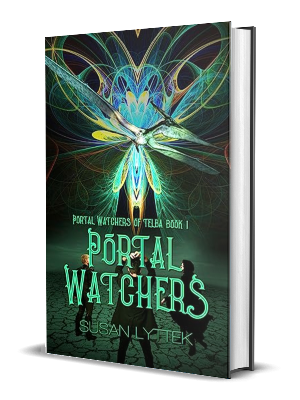


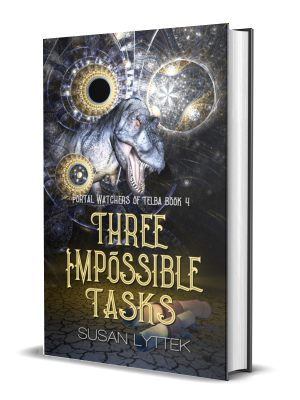
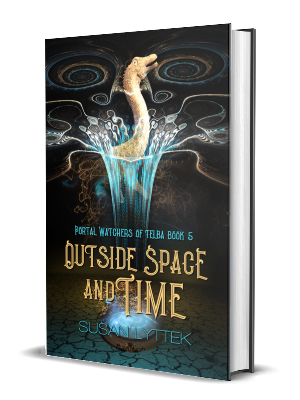
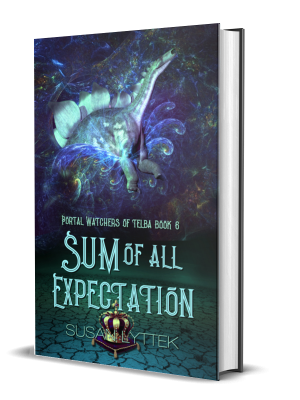



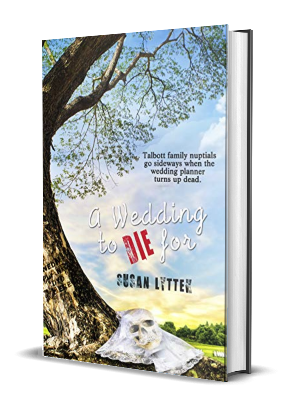
I will not be near either of my sons on Mother’s Day. And that’s by choice. I will, instead, be in Chicagoland getting prepped to help my dad resettle in his cleaned and fumigated house.
Before you go saying that I’m a terrible mother or heartless or some such thing, let me state my case.
First of all, before the mid-1800s, Mother’s Day as we know it didn’t exist. In terms of observations, it’s pretty new. And the women who created it and advocated for it didn’t simply want to honor mothers. They were also looking for a way to get the plight of overworked mothers into the public eye. Some of that was due to the rigors of the frontier, some to the advent of factory labor. Some was just because that’s how mothering has always been. The three advocates for the day over a few decades also hoped to educate women how to be better mothers and thought that the honor might give them something to strive for.
They even made references to the Bible. God called mothers blessed, didn’t he? And in the Ten Commandments, God instructed, “Honor your father and your mother, that your days may be long upon the land which the Lord your God is giving you.” (Exodus 20:12) And in Proverbs, it says that it’s a good thing if the children make the mother rejoice.
All of this, and American public opinion, influenced the leaders until Woodrow Wilson proclaimed that the second Sunday in May would henceforth be called Mother’s Day.
But then the card industry got ahold of the day.
Before I became a mother, I would give my mother what she wanted on Mother’s Day. Usually, it was something time related like playing golf, going for tea, or seeing a ballet. But I didn’t do it because I like Mother’s Day. I did it because my mom would have felt slighted if I didn’t. Since I loved her, I preferred to ignore that outcome. One present, taking her to spend the day with giraffe experts at the zoo, was how I got acquainted with and fell in love with okapis!
The game changed when I became a mother. After a few attempts to do something for me by my guys where I felt totally embarrassed and awkward, I said no more fuss. After all, it’s an artificial holiday.
And, I added, if you get right down to it, any mother is a mother 365 days a year. You don’t become more of a mother just because it’s Mother’s Day. It’s like, you don’t become more loved just because it’s Valentine’s Day or more Irish simply because it’s St. Patrick’s Day. (Even though Patrick was actually Roman.)
I get that we need to celebrate when we can. God even commanded feasts and celebrations in the Old Testament. I also get that we need to honor the people we love in our lives, because that love comes in the image and reflection of the love of our Creator.
It’s just that I prefer my mother’s days to be a bit more spontaneous. Like when one of them calls or texts, just because. Or I get a hug because “you looked like you needed it”. Or when we’re all together and one of them pulls out my favorite board game.
My guys are good at giving me mother’s day moments throughout the year. 365 days a year, they are my sons and I am their mother.
Am I saying it’s wrong to celebrate? Obviously not since I used to in order to show my mom how I appreciated her. It’s just, other than Thanksgiving, Christmas, and Easter, I prefer spontaneous, rather than scheduled holidays.
If you’re not a mother, think of ways you can honor yours in person or in memory.
And for all you mothers out there, I pray you feel blessed by your offspring whatever age they might be, and honored by God for agreeing to that calling on your life. 365 days a year.